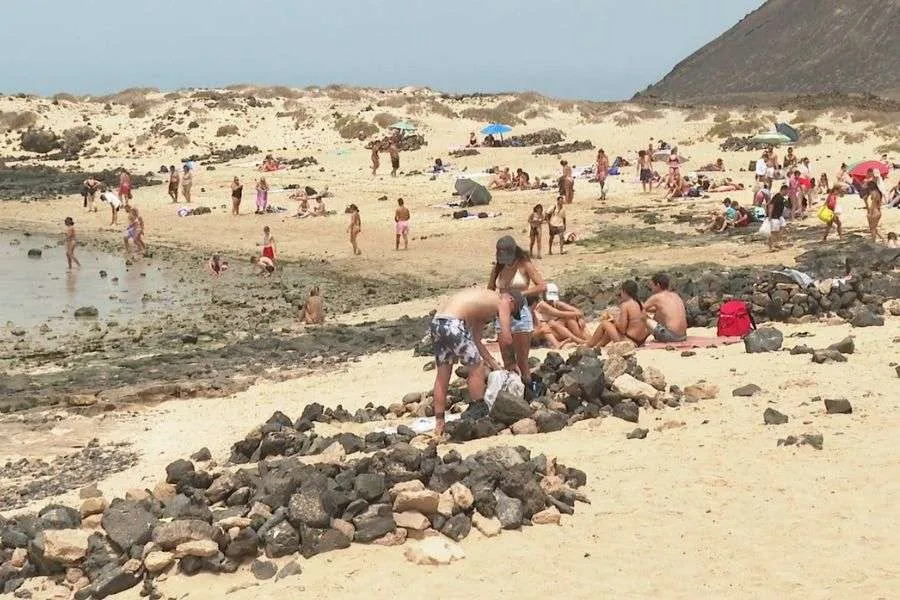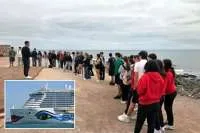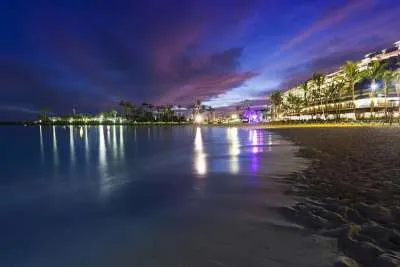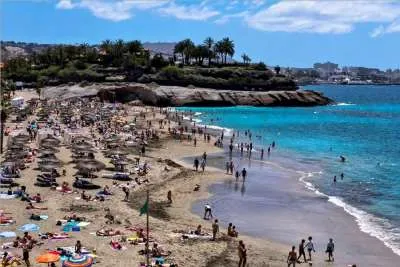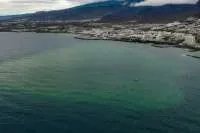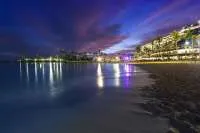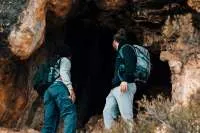Tourism chaos threatens the future of Isla de Lobos
- 25-08-2025
- Fuerteventura
- Canarian Weekly
- Photo Credit: RTVC
Concerns are growing over the future of Isla de Lobos, a protected natural space off the coast of Fuerteventura, as environmental groups denounce what they describe as “total lack of control” in managing tourist visits and illegal activities.
Sofía Menéndez, president of Agonane-Ecologistas en Acción, says that although the island has a legally binding management plan (PRUG), it is rarely enforced.
“There should be at least four environmental agents, but most of the time, there are none. Everyone knows when inspectors arrive and when they leave. It’s a free-for-all,” she said.
The island’s online permit system, known as LobosPass, has also come under criticism, with reports that excursion companies in Corralejo sell trips without checking whether visitors have the required authorisation. Once on the island, there is no control over who enters or leaves.
Campaigners warn that the situation has worsened with the rise of private yachts, water taxis, and tourist catamarans arriving unchecked. “By mid-morning, it feels like a nightclub,” Menéndez explained. “Catamarans blasting reggaeton, jet skis racing behind the island… I’ve seen birds and plants in fragile areas suffering enormous pressure.”
She also raised the alarm about illegal overnight stays, with some huts being advertised as Airbnb rentals despite being on public coastal land. In addition, there are reports of poachers, illegal fishing, and visitors sleeping on the island in breach of regulations.
A recent review of the island’s management plan admits that it is very difficult to control access to Lobos. It highlights damage caused by visitors walking off paths, the creation of unofficial trails, the loss of important dune and salt marsh habitats, and the serious impact on vulnerable species.
The study also shows the lack of infrastructure to cope with the current volume of visitors, from water supply and sanitation to waste management.
Luis del Pozo, spokesman for SOS Fuerteventura, agrees that the problem is a result of poor oversight. “The island plan has always been clear: no more than 200 people at the same time. Yet in summer, numbers can triple that without any control,” he said. “There are plenty of agencies available, environmental officers, Guardia Civil, Seprona, Local Police, Canary Police, and Port Police. A coordinated campaign in August would be enough to stop illegal water taxis and private boats. It doesn’t need a permanent presence, just visible and effective inspections.”
Authorities in Fuerteventura have suggested introducing an ecotax to limit visitor numbers, but campaigners argue it would be pointless without real monitoring. “What’s the use of charging if no one checks?” Menéndez asked. “What matters is having environmental officers on the island all day, applying the law strictly.”
Environmentalists warn that without urgent action, Isla de Lobos could be irreparably damaged within a decade. “Some species are already disappearing,” Menéndez cautioned. “The only solution is to enforce the law and apply the management plan. Otherwise, this natural paradise risks becoming just another victim of mass tourism.”


